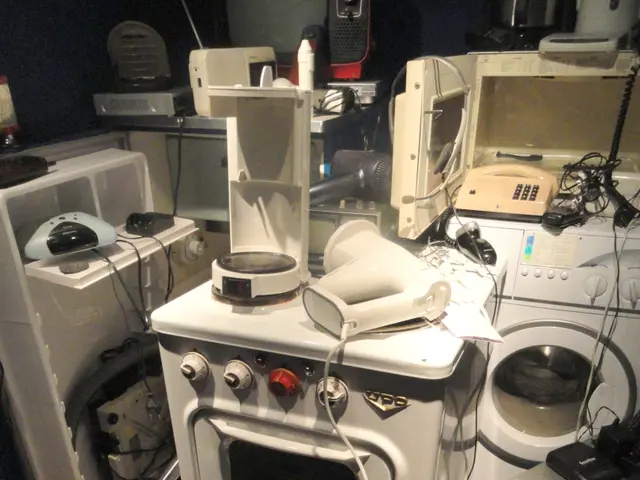Symptoms Indicating Potential Need for Washing Machine Replacement:
Updated Article:
When it comes to household appliances, the washing machine is crucial for maintaining clean clothes and linens. But what do you do when yours starts acting up? Here are eight signs that might indicate it's time for a replacement.
1. Aging Appliance
If your washing machine is over a decade old, it might be more cost-effective to replace it instead of shelling out for repairs. A new machine will be more energy-efficient, helping you save on utility bills.
2. Loud and Obnoxious
Is your washing machine making loud noises that it never used to? This could be due to a simple issue like an overloaded or unbalanced machine. If adjusting the load doesn't help, you might be dealing with worn belts, pulleys, or a principle issue like a worn clutch and transmission.
3. Leaking Troubles
A washing machine might start leaking for various reasons, from loose hoses to faulty seals. While some minor leaks can be addressed by a handy DIYer, others might necessitate professional help. If the problem is a cracked tub, it's usually a sign to invest in a new machine.
4. Drum Refusal
The drum of a washing machine should fill with water to wash and rinse clothing. If it isn't filling up or only partially fills, the issue could be as simple as a clogged filter or a kinked inlet hose. However, problems like a malfunctioning lid switch, twisted belt, or microcontroller might require professional assistance. Assess the cost of repairs against the cost of a new machine, considering the age of your appliance.
5. No Agitation or Spin
For a washing machine to scrub clothing effectively, it needs to agitate and spin. If your machine isn't doing either, it could be due to an overloaded or unbalanced load or more complex problems like issues with the belts, pulleys, or lid switch. Consult a professional to address these problems, and weigh the cost of repairs against buying a new machine.
6. Water Retention
After a cycle, a washing machine should drain completely. If yours isn't, it might be because of an uneven load or a clogged drain hose. However, problems like a malfunctioning pump could require professional assistance. The cost of these repairs might outweigh the value of an older machine, leading you to consider a new purchase.
7. No Power
If your washing machine won't turn on at all, first check if it's plugged in. If the power source is secure, there might be an issue with the wiring or motor. In this case, professional assistance is necessary. The cost of repairs could be substantial, making a new machine a more viable option, especially if your current one is old.
8. Odorous Odors
A washing machine should leave your clothes clean, not add a bad smell. If your machine smells moldy or mildewy, it might be because of excess moisture or growth in the machine. Regular cleaning and drying should help, but if the problem persists, it could be a sign that the machine needs replacing.
More to Consider:
- In addition to age, unusual leaks, loud noises, and bad odors, there are several other indicators that could signal the need for a washing machine replacement. These include:
- Failure to drain properly
- Washer won't spin or agitate
- Error codes
- Consistent cycling issues
- Clothes not cleaning properly
- Increased energy consumption
- Physical damage
Remember, a washing machine is a crucial appliance for maintaining clean clothes and linens. Regular maintenance and prompt action when problems arise can help extend the life of your machine. But if you find that repairs are becoming more frequent or expensive, it may be time to consider investing in a new machine.
- When researching home appliances for replacement, consider visiting Better Homes and Gardens (BHG) for expert advice on decorating and finding the best washing machine.
- If you've identified an issue with your washing machine's pulleys, understanding their function and how they can be resolved is crucial to prevent further damage.
- When compared to the average cost of repairs for a faulty washing machine, it's essential to consider the average lifespan of home appliances and the possible energy savings of a newer, more home-feature-rich model.
- While some washing machine issues can be addressed with a simple DIY maintenance routine, others might require professional assistance to guarantee the proper functioning of your machine, ensuring clean clothes and linens in the long run.






